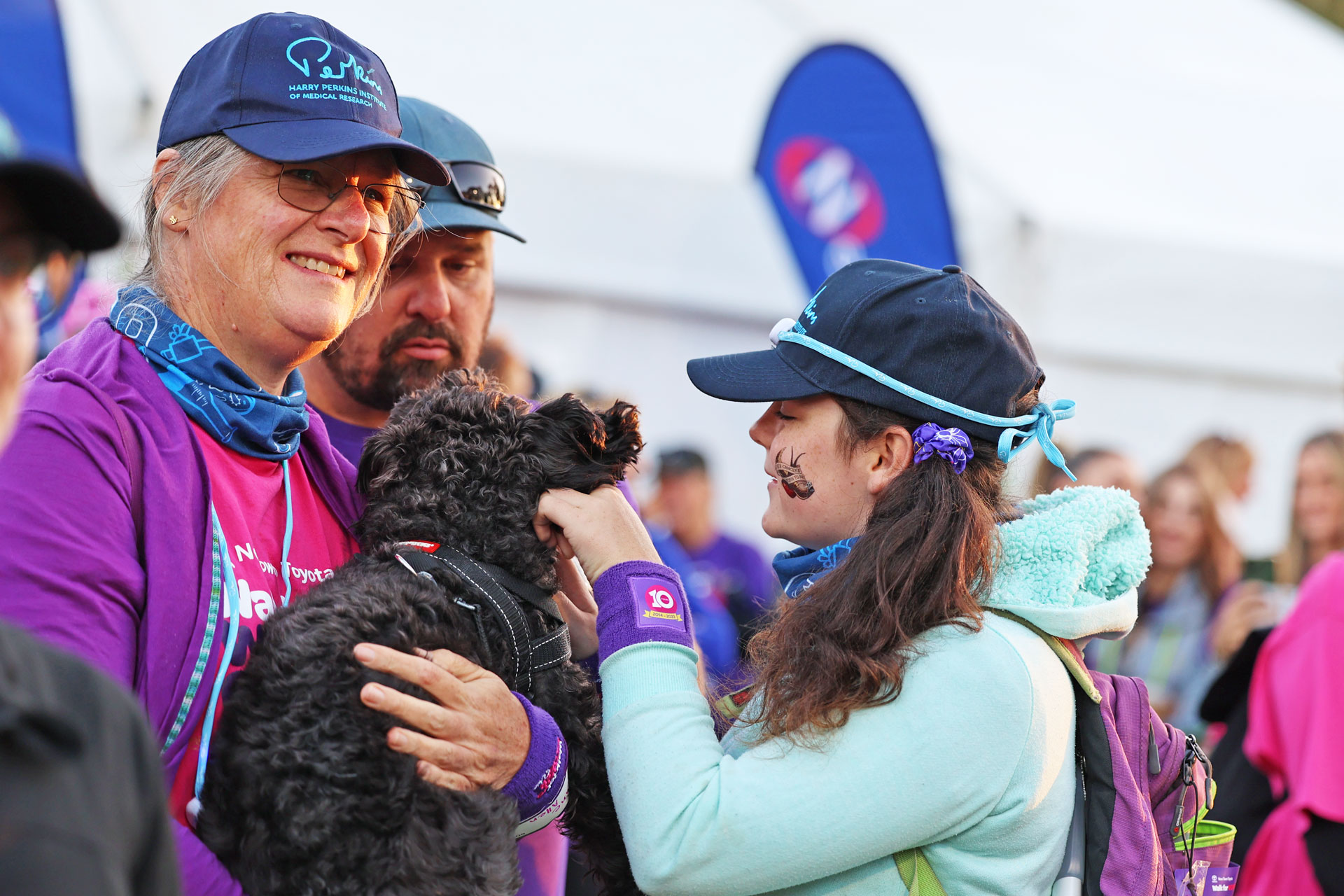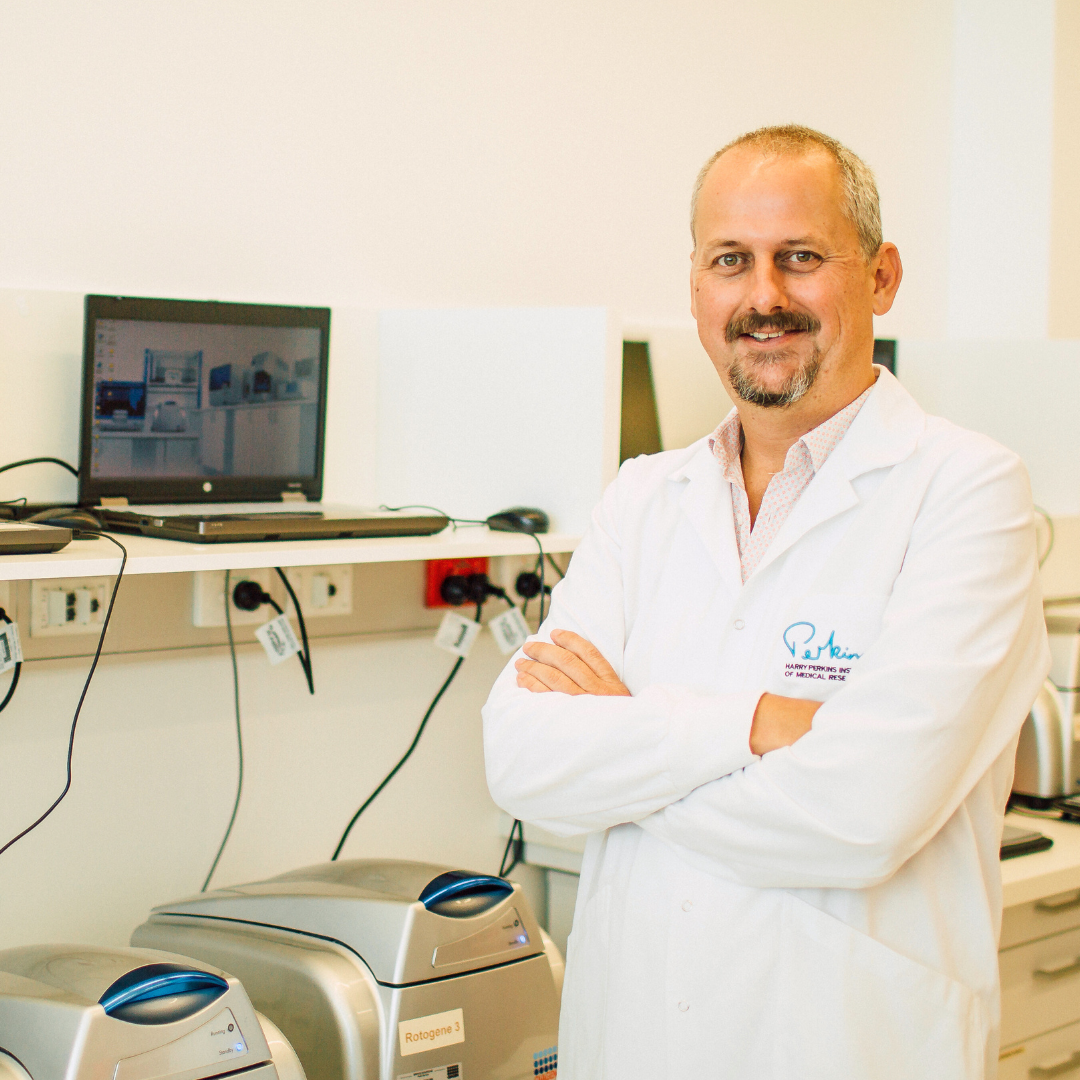TOGETHER WE CAN SAVE LIVES
Since its inception in 1998, the Harry Perkins Institute of Medical Research has made significant discoveries into the diseases that plague our families, in particular heart disease, diabetes, cancer and rare genetic diseases.
With over 270 researchers, scientists and doctors housed in two state-of-the-art research facilities, the Perkins creates a culture of innovation and collaboration. Teams dedicated to finding answers to defeat women’s cancers are funded from the Walk for Women’s Cancer each year.
This is how you're having an impact...


Ass. Prof. Pilar Blancafort and Dr Edina Wang
You're supporting
INNOVATIVE BREAST CANCER RESEARCH
By backing Associate Professor Pilar Blancafort and Doctor Edina Wang you are facilitating positive advancement in their groundbreaking cancer research.
Pilar Blancafort is the Head of the Laboratory in Cancer Epigenetics at the Perkins. In 2021, her lab pioneered the discovery of a gene that shields certain breast cancer cells from treatment. Since that discovery, her lab has been working hard to find a way to deactive the gene, leading to new possibilities in the treatment of aggressive cancers like triple-negative breast cancer.
Additionally, they have found honeybee venom, particularly its key component melittin, is highly effective at destroying cancer cells while sparing healthy ones.
Melittin weakens and dissolves cancer cells, especially in aggressive types that are hard to treat. Edina’s team is now synthesising melittin and combining it with tumour suppressants and anti-cancer agents, showing promising results in eradicating cancer cells.
You're powering progress
DECODING OVARIAN CANCER
This year over 1800 Australian women will be diagnosed and another 1000 will be die from ovarian cancer. Professor Alistair Forrest and his team seek to change that. They have uncovered something important about ovarian cancer.
Using a powerful mapping tool, Alistair’s team discovered that an ovarian tumour isn’t just one type of cancer cell, it can contain several “subclones”, each behaving differently. Some allow immune cells in, while others push them out. The ones that push them away may also resist treatments like chemotherapy.
Understanding this is a big step forward. It means that researchers can now look for drugs that turn off those ‘stay away’ signals and help the immune system storm inside the tumour where it can do its job.
Exciting breakthroughs like these will be supported by the Walk to help scientists unlock effective treatments for women facing ovarian cancer and to protect future generations.

Prof. Alistair Forrest

Assoc.Prof. Juliana Hamzah and Dr Qi Fang
You're backing
CUTTING EDGE MEDICAL TECHNOLOGY
Each year a dedicated research team is awarded the New Town Toyota Walk for Women’s Cancer Gift. Made possible by your generosity, this gift empowers talented researchers to continue the search for groundbreaking discoveries in women’s cancer research, no matter what.
Funds raised by the Walk fuel research on less invasive and more efficient breast cancer detection methods.
Researchers Qi Fang and Associate Professor Juliana Hamzah and their team are investigating a method called metasurface optical refraction tomography (MORT). Using advanced light-based technology to look inside the body and measure the density of cells.
Cancer cells tend to have different densities, so by producing many highly detailed images of human tissue, they aim to develop a procedure that will quickly identify cancer cells.
This means patients would receive a more accurate diagnosis, experience less trauma and gain critical time to begin lifesaving treatment.



